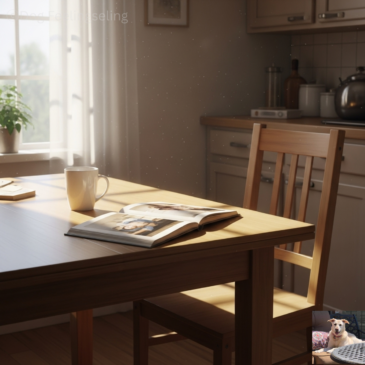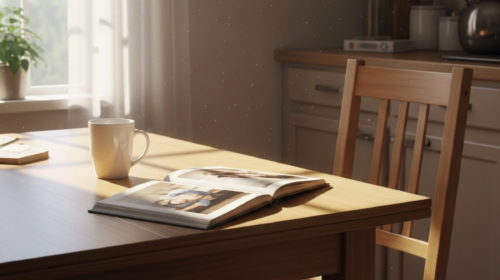The day after I buried my parents, the world kept moving—but I didn’t.
The funeral had come and gone in a blur of handshakes, condolences, flowers, and folded tissues. People had said all the right things: *“They’re in a better place.”* *“You were lucky to have them.”* *“Let me know if you need anything.”*
But no one tells you what to do the morning after—when the crowd disappears, and you’re left alone in the silence of their absence.
I woke up in their house—*my* childhood home—but it no longer felt like mine. The air was heavy. The sunlight streamed in through the curtains, as if nothing had changed. But everything had.
The kitchen was too clean. My mother’s favorite mug still sat on the shelf, untouched. My father’s slippers were neatly lined up by the back door. For a brief moment, I expected to hear their voices, to smell breakfast cooking, to feel like a daughter again. But there was only silence.
I made a cup of coffee and sat at the table, staring out the window. The neighbor’s dog barked. A mail truck passed. A jogger waved. Life, it seemed, didn’t notice that mine had fallen apart.
I thought I would cry, but I didn’t. Not at first. Instead, I wandered through the house, touching the things they had left behind. My father’s old flannel jacket still hung by the closet. My mother’s calendar was flipped to the month of April, with “doctor’s appointment” scribbled in her careful handwriting. Their world had been paused. Mine was just beginning to unravel.

I opened drawers I hadn’t opened in years—finding birthday cards, church bulletins, half-finished crossword puzzles. I found a note in my mother’s handwriting tucked into a recipe book: *“Add extra lemon for Clara—she likes it tart.”* I hadn’t even remembered telling her that.
It was then, reading that small note, that I broke. The tears came—not in a dramatic wave, but in quiet sobs I couldn’t stop. It wasn’t just grief. It was the loss of their presence in all the ordinary moments. The kind of love that wraps itself into the details of your life—the familiar routines, the check-in calls, the way they knew how you liked your tea.
Later that day, I sat on the porch with a blanket over my shoulders and a box of old photo albums in my lap. I looked at photos of my parents in their twenties, smiling on camping trips, holding me as a baby, laughing at Christmas. I realized how much life they had lived before I even existed—and how much they gave up to raise me.
I hadn’t always appreciated them. I had fought, rolled my eyes, rushed out of family dinners. I had assumed they would always be there. And now I was left with memories, regrets, and an ache I couldn’t name.
But in that ache, I also found something else—gratitude.
They had loved me deeply. Imperfectly, yes, but fully. They had raised me with values, kindness, and strength. And though they were gone, their legacy was not. It was in me. In the way I approached the world. In the way I showed up for others. In the way I would one day raise my own children.
The day after I buried my parents, I didn’t heal. But I began to understand what healing would look like. It would be slow, uneven, and painful. But it would also be rooted in memory. And in love.
—
### **Final Thought:**
The day after goodbye is often the hardest—not because it’s loud, but because it’s quiet. Yet in that stillness, we begin to hear the echoes of those we’ve lost… and realize that love never truly leaves us. It simply changes form.



